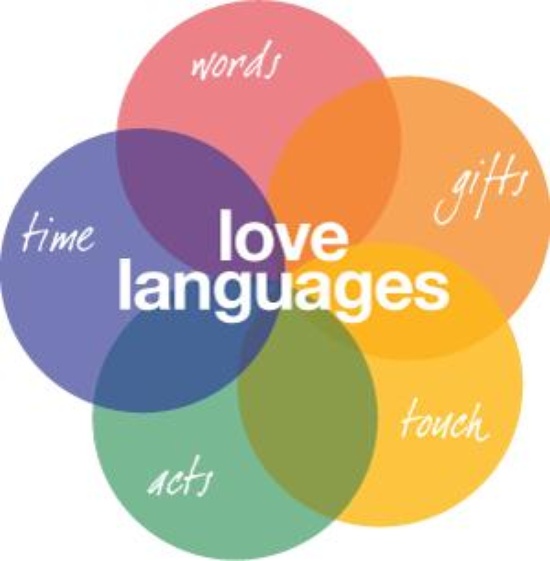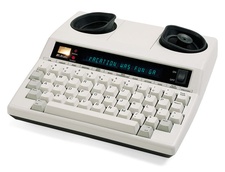In Love, How Much Does Language Really Matter?
Posted by: Staff Writer on Feb. 25, 2013

Ask anyone what the necessary ingredient is for a top-notch romantic relationship, and “communication” is always high on the list. But there’s a catch is: the same answer can vary by language: Es la la comunicación! (Spanish), lian luo (Mandarin), Kommunikation (German). Ask a deaf person, and you may get a signed response of two C-shaped hands moving back and forth.
So, it would almost seem that communication and language are pretty much one and the same, right?
Well, hold your horses. Lest you forget, “Me Tarzan, you Jane” (a syntax oh-so-similar to ASL) was the pickup line sparking the most unlikely relationship ever: A loin clothed jungle dude and the refined lady Jane Porter. Maybe what author Edward Rice Borrough was trying to illustrate was: Love and communication ain’t all about using the same syntax!
So, does one partner’s ASL fluency or another partner’s attempts at voicing make or break a deaf (or HH)/hearing relationship? Should we both say tomatoes, or to-mah-toes, or should we both sign with an index finger on chin, bending down and brushing against the flattened “O” handshape?
Picking a Mutual Language
Thinking the obvious answer must be a resounding yes, we once again picked the brain of Shannon Ruane, the ASL-fluent counselor who also consulted with us for our articles “Big Fat Deaf-Deaf Wedding” and “Navigating Deaf-Hearing Dating Minefields”. For over a decade, Ruane has worked with many couples with unique communication challenges – and she’s seen and heard all sorts of unique communication solutions.
But we had another think (or perspective, rather) coming:
Not necessarily,” said Ruane. “In the past I would have said, 'yes, definitely, clear communication is key!', but as I have more experience with couples in a therapeutic setting, I can see that communication between the couple generally grows and develops into something that they're comfortable with and works for them.”
Occasionally, that “something” includes the dinosaur of all deaf technologies: The TTY machine.
 "I knew one couple who only had their arguments via written word - using text when in a bind or preferably sitting together with an iPad and typing their sides of the argument to one another. As frustrating as the approach may sound - who wants to think of how to spell words when you're ready to blow your stack? - they actually had really productive arguments and were able to calm down more quickly as they typed and waited to read the other's response - almost like an old fashioned TTY conversation.”
"I knew one couple who only had their arguments via written word - using text when in a bind or preferably sitting together with an iPad and typing their sides of the argument to one another. As frustrating as the approach may sound - who wants to think of how to spell words when you're ready to blow your stack? - they actually had really productive arguments and were able to calm down more quickly as they typed and waited to read the other's response - almost like an old fashioned TTY conversation.”
Clearly, the stereotype of deaf couples arguing with blazingly fast, furious hands (that raise higher in the air as if they were octaves of yelling voices) is not always true. Who said technology was evil?
“Joy of Signing” for the Joy of a Connection
Whether the goal is to find a soul mate, to save souls, or to counsel a lost soul, it’s human nature to connect with others. Sharing the same language is one way to ease the challenge of making a good connection.
Ask a group of interpreters how they found their calling, and a few of them may admit it was because they wanted to approach a deaf love interest (“You can fingerspell your name? You’re going to pick up so many deaf chicks,” is a Willy Wonka meme that went viral). Diving head-first into a deaf environment for the sake of love can be just as effective as flipping through “The Joy of Signing” at home.
But tread lightly with the assumption that your sweetheart must sign fluently (or else the relationship’s doomed), Ruane says. Relationship dynamics are so unique that language needs vary from one couple to another:
“Sometimes the ones who have been creative and nurturing of one another’s attempts to find a common ground have more comfort and ease in communication than those who took classes and spent a great deal of time mastering the language.”
On the other hand, “if one person relies on ASL and the other only knows basic signs - it would obviously make their relationship easier in the long run if the hearing partner was able to pick up more advanced, conversational signs.”
Can you pass the 17-second test?
Language isn’t just about words, syntax, spelling, or pronunciation.
So says New York Times’ bestselling author Gary Chapman, who came up with 5 love languages: Words of affirmation, acts of service, receiving gifts, quality time, and physical touch.
Language is also about the thoughtful pause. “Recent research has indicated that the average individual listens for only 17 seconds before interrupting and interjecting his own ideas,” Chapman pointed out (Note: this certainly builds a solid case for iPad or TTY-texting arguments!)
In a 30-question quiz determining the scores for one’s love language, “I really enjoy the feeling I get when someone gives me undivided attention” applies whether you speak Congolese or use sign language. Question 27 : “I like for a person to look at me when we are talking” (absolutely applies to all deaf/hard of hearing individuals.)

What’s important to many Boomers and senior citizens experiencing age or occupation-related hearing loss is often different from what’s important to those who have been deaf all their lives. Aphrodisiacs may range from diamonds, to chocolates ... and quite possibly, hearing aids.
"If you really loved me, you'd wear your hearing aid!" is being echoed in more and more households. We’re living longer and longer, and can’t dodge the age-induced hearing loss that comes with the territory. That means even if they bantered beautifully in the first few decades of wedded bliss, many couples are thrown for a loop when one or both suddenly can’t hear like they used to.
In 2007, Energizer Battery Inc. surveyed baby boomers and found that nearly half said their marriages suffered because of a spouse's hearing loss. Also, 65% reported being “annoyed” when their significant other cannot hear, and 46% feel that “denial” is the main reason for their partner refusing to wear hearing aids regularly.
Got an extra $2,000 to $8,000 to pony up for a set of digital hearing aids? It may very well be the best investment you ever made in the golden years of your marriage. But for someone who has been deaf his or her entire life, or is still a young adult without a retiree’s disposable income, a set of hearing aids (or cochlear implant) just isn’t a silver bullet.
Likewise, expecting a 60-something couple to pick up ASL is not always practical (if it were, “Sign Language for Grandpa” would have reached the same height of popularity as teaching sign language to babies).
With that cradle-to-the-grave picture, herein lies the crux of this whole “language of love” topic:

Whether you’re honeymooning or just celebrated your diamond anniversary, enjoy the lifelong adventure of learning new ways to communicate. For love’s sake.
Shannon Ruane is an ASL-fluent licensed professional counselor and Certified Rehabilitation Counselor in private practice in Philadelphia, PA. If you have a question about services like psychotherapy or have ever wondered if a deaf person can actually benefit from hypnotherapy, find Shannon at Ruane Counseling.
Tags
- deaf
- hard of hearing
- deaf blind
- deaf friendly
- deafhh
- romantic relationship
- communication
- spanish
- mandarin
- kommunikation
- tarzan
- jane porter
- edward rice borrough
- asl
- shannon ruane
- tty
- willy wonka
- the joy of signing
- language
- new york times
- gary chapman
- new york times bestselling author
- ipad
- congolese
- sign language
- energizer battery
- digital hearing aids
- cochlear implant




Comments